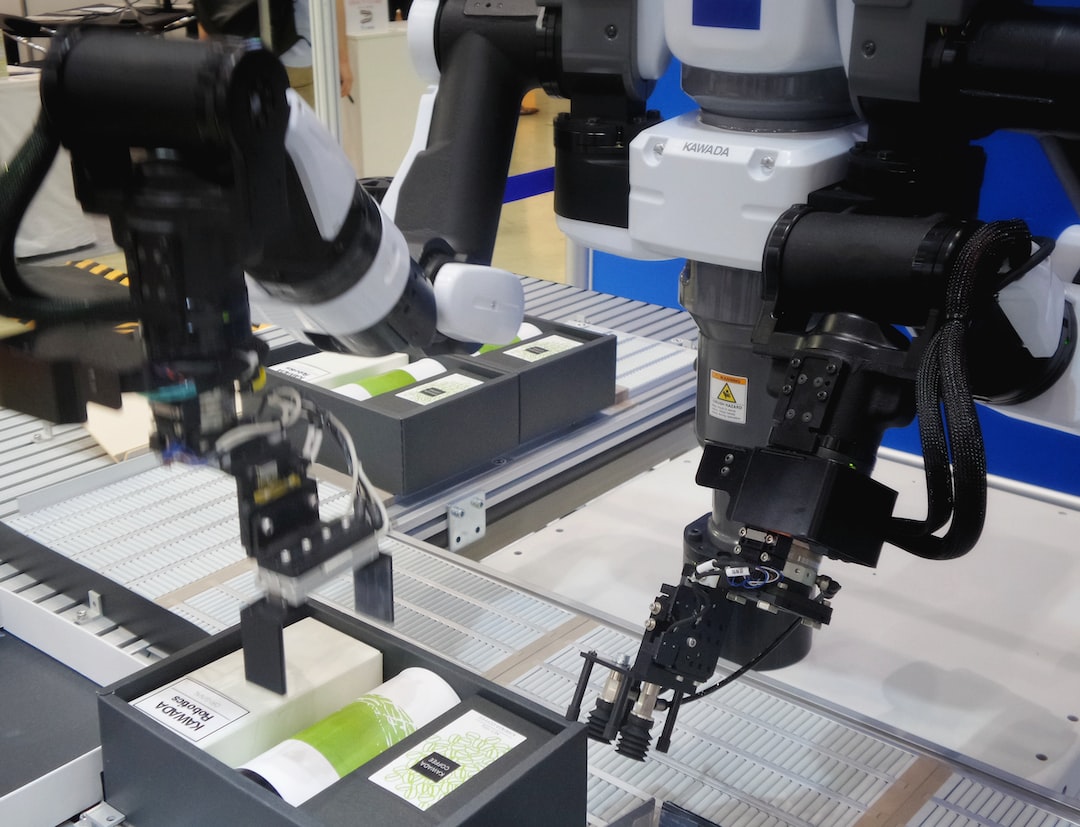As we move deeper into the 21st century, the rise of artificial intelligence (AI) is becoming increasingly prevalent in our daily lives. From our smartphones to our cars, AI is slowly but surely becoming a ubiquitous force in modern society. While the benefits of AI are undeniable, it is important to consider the ethical considerations that come with its development and deployment.
As AI continues to evolve and become more sophisticated, it has the potential to revolutionize the way we live and work. Its efficiency, accuracy, and ability to innovate have already led to significant advancements in fields such as healthcare, transportation, and finance. However, with great power comes great responsibility, and the risks associated with AI cannot be ignored.
One of the most pressing concerns is the potential for bias in AI systems. As these systems are often trained on large datasets, they can inadvertently learn and perpetuate existing biases and inequalities in society. Additionally, the collection and use of personal data by AI systems raises serious privacy concerns, particularly when it comes to the use of facial recognition technology.
Another significant risk associated with AI is the potential for job displacement. As AI becomes more capable of performing tasks traditionally done by humans, there is a real possibility that many jobs may become obsolete. This could have serious economic and social implications, particularly for those who are already marginalized or disadvantaged.
Given these risks, it is clear that ethical frameworks for AI development and deployment are essential. These frameworks must be designed to ensure that AI is developed and used in a way that is fair, transparent, and accountable. They must also take into account the perspectives and needs of all stakeholders, including governments, industry, and consumers.
In the following sections, we will explore the benefits and risks of AI in more detail, as well as the importance of ethical frameworks and the role of stakeholders in ensuring ethical AI practices. We will also discuss some of the key ethical challenges associated with AI, including transparency, accountability, and fairness, and offer some potential solutions. Ultimately, our goal is to strike a balance between AI progress and ethical responsibility, so that we can harness the full potential of this transformative technology while minimizing its potential risks.
The Benefits of AI: Efficiency, Accuracy, and Innovation
Artificial Intelligence (AI) has become a buzzword in recent years, and for good reason. The technology has the potential to revolutionize the way we live and work, bringing about a new era of efficiency, accuracy, and innovation. AI can automate mundane tasks, analyze vast amounts of data in seconds, and provide insights that were previously impossible to obtain. In this section, we will explore the benefits of AI and how they can improve various industries and sectors.
One of the primary benefits of AI is its ability to enhance efficiency. By automating repetitive tasks, AI can reduce the workload of human employees, allowing them to focus on more complex and creative work. For example, in the healthcare industry, AI can help doctors and nurses by automating administrative tasks such as scheduling appointments and managing patient records. This can free up valuable time for medical professionals to spend with patients, improving the quality of care.
Another significant benefit of AI is its ability to improve accuracy. AI algorithms can analyze vast amounts of data with precision and speed, identifying patterns and insights that may be missed by humans. In the financial industry, for example, AI can detect fraudulent transactions with greater accuracy than traditional methods, potentially saving billions of dollars annually.
Finally, AI has the potential to drive innovation in various industries. By analyzing data and identifying patterns, AI can provide insights that can lead to new products and services. For example, in the retail industry, AI can analyze customer data to provide personalized recommendations and improve the overall shopping experience.
While the benefits of AI are clear, it is important to consider the potential risks and drawbacks of the technology. In the next section, we will explore some of the risks of AI, including bias, privacy concerns, and job displacement.
Another significant benefit of AI is its ability to improve accuracy.
The Risks of AI: Bias, Privacy, and Job Displacement
As we delve deeper into the world of Artificial Intelligence (AI), it’s important to recognize not only its benefits, but also the potential risks it poses. One of the most significant risks is the potential for bias in AI algorithms. AI algorithms are only as unbiased as the data they are trained on, and unfortunately, the data often reflects societal biases and prejudices. This can result in AI systems that perpetuate and even amplify these biases, leading to discriminatory outcomes.
Another major concern is privacy. As AI systems become more pervasive, they collect vast amounts of data about individuals, including sensitive personal information. This data can be used to make decisions about individuals without their knowledge or consent, potentially leading to violations of privacy and civil liberties.
Job displacement is another significant risk of AI. As AI systems become more capable, they can take over tasks that were previously performed by humans. This can lead to job losses and disruptions in the labor market, particularly for workers in industries that are highly susceptible to automation.
These risks are not just hypothetical. We have already seen examples of biased AI systems, such as facial recognition software that misidentifies people of color at higher rates than white people. There have also been numerous instances of data breaches and violations of privacy as a result of AI systems.
It’s important to recognize these risks and take steps to mitigate them. This includes developing AI systems that are transparent and accountable, so that biases and errors can be identified and corrected. It also involves ensuring that individuals have control over their personal data and that it is used only for legitimate purposes. Finally, it requires thoughtful consideration of the potential impact of AI on the labor market and the development of policies to support workers who may be displaced by automation.
While the risks of AI are real, they should not overshadow the potential benefits. AI has the potential to revolutionize industries, improve efficiency, and enhance our understanding of the world. By recognizing and addressing the risks, we can ensure that these benefits are realized in an ethical and responsible manner.
It also involves ensuring that individuals have control over their personal data and that it is used only for legitimate purposes.
The Importance of Ethical Frameworks for AI Development and Deployment
As AI continues to advance and become more integrated into our daily lives, it is becoming increasingly important to consider the ethical implications of its development and deployment. Ethical frameworks for AI can help guide the development and use of these technologies in a way that is responsible, fair, and beneficial for all.
One of the key reasons why ethical frameworks are important for AI is that these technologies have the potential to impact people’s lives in significant ways. For example, AI algorithms are already being used to make decisions about who gets hired for jobs, who gets approved for loans, and even who gets released from prison. If these algorithms are not designed and deployed in an ethical manner, they could perpetuate biases and inequalities that already exist in society.
Ethical frameworks for AI can also help to ensure that these technologies are developed and used in a way that respects people’s privacy and autonomy. For example, there are concerns that AI-powered surveillance systems could be used to monitor people’s behavior without their knowledge or consent. By establishing ethical guidelines for the use of these technologies, we can help to protect people’s rights and freedoms.
Another important reason why ethical frameworks are important for AI is that they can help to build trust and confidence in these technologies. If people believe that AI is being developed and used in an ethical manner, they may be more likely to accept and use these technologies. On the other hand, if people believe that AI is being used to exploit or harm them, they may be less likely to trust and use these technologies.
Overall, ethical frameworks for AI are essential for ensuring that these technologies are developed and used in a way that is responsible, fair, and beneficial for all. By considering the ethical implications of AI, we can help to build a more just and equitable society, and ensure that these technologies are used to improve people’s lives rather than harm them.
Ethical frameworks for AI can help guide the development and use of these technologies in a way that is responsible, fair, and beneficial for all.
The Role of Stakeholders in Ensuring Ethical AI Practices: Governments, Industry, and Consumers
The development and deployment of AI technology is not solely the responsibility of developers and tech companies. It is a shared responsibility among stakeholders, including governments, industry, and consumers. These stakeholders play a critical role in ensuring ethical AI practices that promote transparency, accountability, and fairness.
Governments have the responsibility to regulate AI development and deployment to ensure that it aligns with ethical principles. They can establish laws and regulations that require companies to disclose how they use AI and ensure that it is not used in ways that harm individuals or groups. Governments can also fund research on ethical AI and promote public awareness of AI’s potential risks and benefits.
Industry also has a responsibility to develop and deploy AI ethically. Tech companies should prioritize transparency in their AI development and deployment processes, allowing for public scrutiny and accountability. They should also ensure that their algorithms are fair and unbiased, and that they do not perpetuate discrimination or harm. In addition, industry should prioritize the development of AI that benefits society as a whole, rather than just their bottom line.
Consumers also have a role to play in ensuring ethical AI practices. They can demand transparency and accountability from tech companies, and use their purchasing power to support companies that prioritize ethical AI development and deployment. Consumers should also be aware of the potential risks associated with AI, such as privacy violations and job displacement, and advocate for policies that protect their rights.
The development and deployment of AI technology must be guided by ethical principles that prioritize transparency, accountability, and fairness. This requires the involvement and cooperation of all stakeholders, including governments, industry, and consumers. By working together, we can ensure that AI is developed and deployed in ways that benefit society as a whole, while minimizing its potential risks.
They should also ensure that their algorithms are fair and unbiased, and that they do not perpetuate discrimination or harm.
Addressing the Ethical Challenges of AI: Transparency, Accountability, and Fairness
As AI continues to advance and become more prevalent in our daily lives, it is crucial that we address the ethical challenges that come with it. Three key ethical principles that must be considered when developing and deploying AI systems are transparency, accountability, and fairness.
First and foremost, transparency is essential in ensuring that AI systems are trustworthy and reliable. Transparency means that AI systems should be designed to be explainable and understandable, so that users can understand how decisions are being made. This is particularly important in areas such as healthcare and finance, where AI systems are being used to make critical decisions that can have a significant impact on people’s lives.
Secondly, accountability is crucial in ensuring that AI systems are used for the benefit of society as a whole, rather than for the benefit of a few individuals or organizations. Accountability means that those responsible for developing and deploying AI systems must be held responsible for their actions, and that there must be mechanisms in place to ensure that AI systems are used in a responsible and ethical manner.
Finally, fairness is essential in ensuring that AI systems do not perpetuate existing biases and inequalities in society. AI systems must be designed to treat all individuals fairly and equitably, regardless of their race, gender, or socioeconomic status. This requires a deep understanding of the biases that exist within society, and a commitment to designing AI systems that are free from these biases.
In order to address these ethical challenges, a collaborative effort is required from all stakeholders involved in the development and deployment of AI systems. Governments must create regulatory frameworks that promote transparency, accountability, and fairness in AI systems. Industry must commit to developing AI systems that are designed with these ethical principles in mind. And consumers must demand that AI systems are used in a responsible and ethical manner.
Addressing the ethical challenges of AI is essential in ensuring that the benefits of AI are realized while minimizing the risks. By prioritizing transparency, accountability, and fairness, we can create AI systems that are trustworthy, reliable, and beneficial to society as a whole.
And consumers must demand that AI systems are used in a responsible and ethical manner.
Conclusion: Striking a Balance between AI Progress and Ethical Responsibility
In conclusion, the rise of AI has brought about numerous benefits, including increased efficiency, accuracy, and innovation. However, it has also posed significant risks, such as bias, privacy concerns, and job displacement. As AI continues to evolve and become more integrated into our lives, it is crucial to consider the ethical implications of its development and deployment.
Ethical frameworks must be established to guide the development and use of AI. These frameworks should address transparency, accountability, and fairness to ensure that AI systems are used in a responsible and ethical manner. Governments, industry, and consumers all have a role to play in ensuring that ethical AI practices are followed.
As we move forward, it is essential to strike a balance between AI progress and ethical responsibility. We cannot ignore the potential benefits of AI, but we must also be mindful of the risks and take steps to mitigate them. By doing so, we can harness the power of AI while ensuring that it is used in a way that is ethical, responsible, and beneficial to all.





